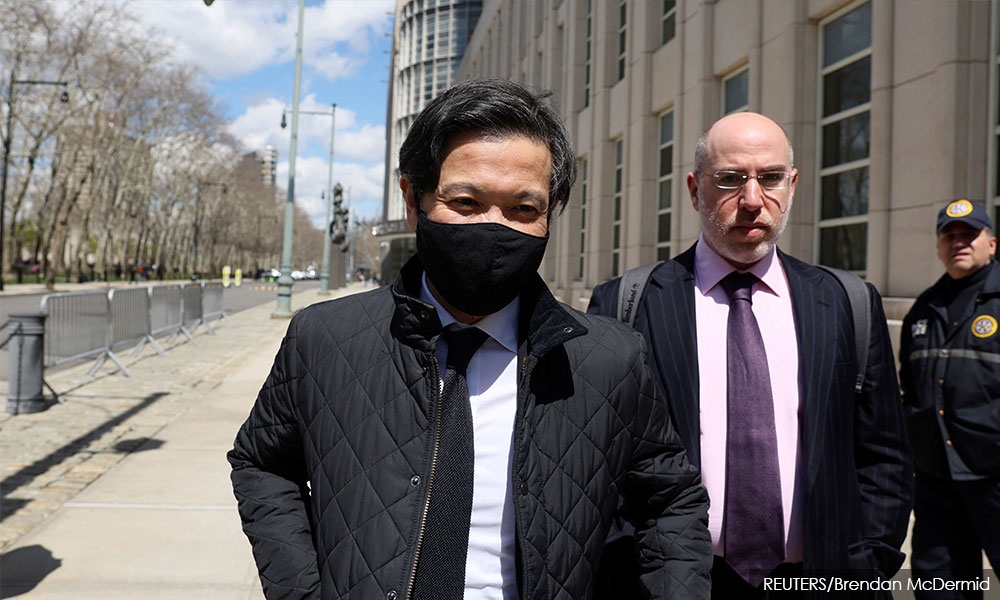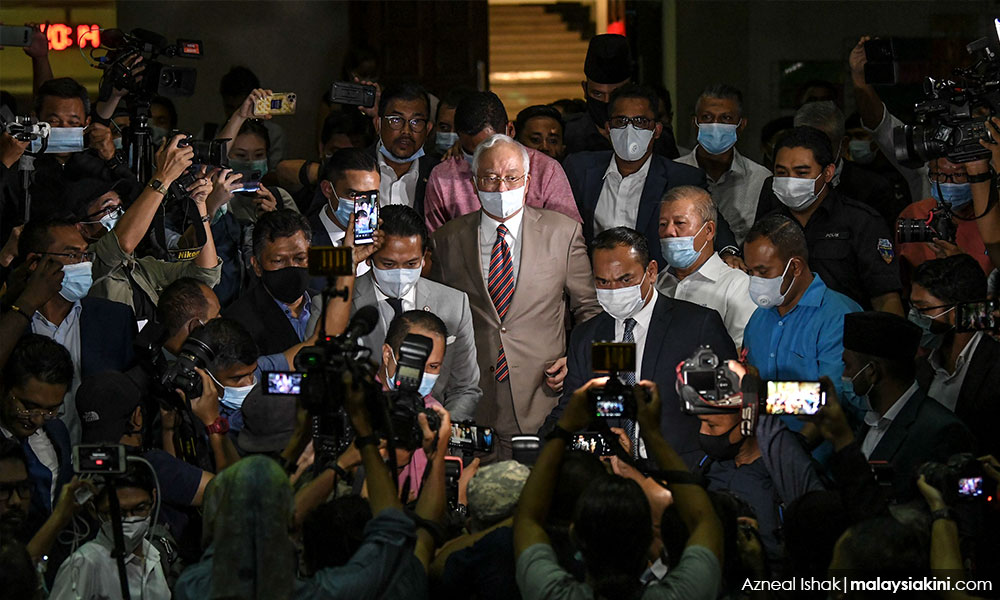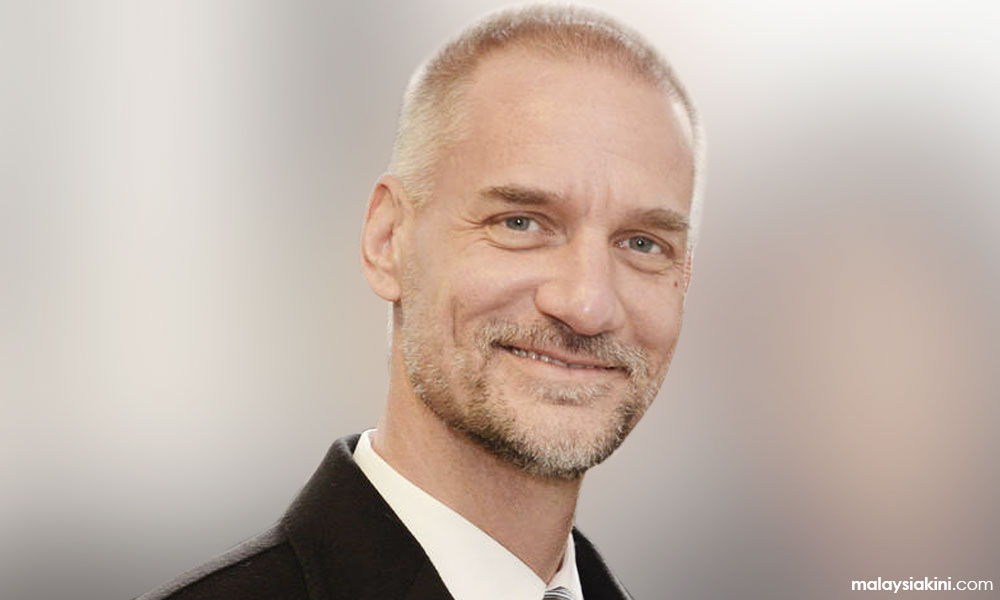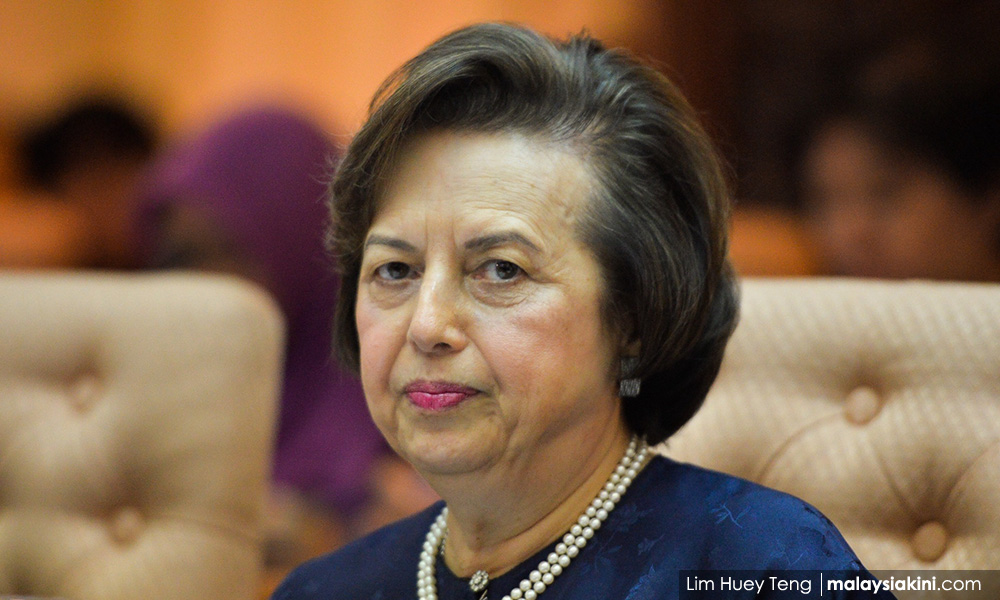This article was originally published on Between The Lines, a weekday newsletter that summarises the most important news stories with insights, context and wit! Sign up here.
Malaysian former Goldman Sachs banker Roger Ng was convicted of three charges of money laundering, conspiracy and bribery in the 1MDB scandal last Friday.
He faces up to 30 years in prison. He is the 10th person to be found guilty of criminality in court surrounding what is being called the world’s largest kleptocracy scandal (Ng and his legal team may challenge the verdict and appeal).
1MDB is complicated and has dragged on for almost seven years since the scandal initially became public in July 2015. As such, many tune out the hard-to-follow stream of reports about it.
It is further complicated by a local narrative that aims to portray the scandal as a political conspiracy.
Those frustrated with the delays in prosecution within Malaysia and the lack of shame and accountability on display have become cynical that justice will not be served.
Ng’s conviction is, nevertheless, an important step towards justice.
Not only did the prosecution bring to the fore new revelations about the scandal, but it also showed how a trial can proceed, within two months and with due process, and serves as a reminder that 1MDB is international in scope, not local.
Ng was convicted by a jury that has nothing to do with Malaysia and its politics. The jury convicted Ng on the overwhelming strength of evidence of greed and vice.

1MDB's broad scope
The breadth of criminal activity associated with 1MDB is breathtaking.
Besides Ng, the other 1MDB legal cases already decided in court include five convictions of money laundering in Singapore and three other cases in the United States.
The latter include guilty pleas by Tim Leissner for money laundering, conspiracy and bribery, George Higginbotham, and Elliott Broidy, the former Republican financier who was subsequently pardoned by then US President Donald Trump, for illegal lobbying.
The most prominent conviction (to date) involves Malaysia’s former prime minister Najib Abdul Razak for his involvement in SRC International Sdn Bhd, a former subsidiary of 1MDB.
Najib was convicted by the KL High Court in July 2020 on all seven charges of criminal breach of trust, money laundering and abuse of power, and sentenced to a total of 72 years to run concurrently, translating to a total of 12 years.
He has denied wrongdoing and has appealed his case. However, in December, the Court of Appeal upheld the High Court ruling. He is waiting for a date to be set for his final appeal hearing at the Federal Court.
Given the seriousness of the charges, these appeals are an important part of the process, as Najib, like everyone else, deserves to have his arguments heard.

Meanwhile, there are at least 15 other criminal cases involving both individuals and organisations that have reached legal settlements over 1MDB and paid (often quite significant) fines.
These include Goldman Sachs in Malaysia (US$3.9 billion), Singapore (US$165 million), the US (US$2.9 billion), banks based in Singapore and Malaysia, such as Swiss bank BSI, which ended operations after 140 years due to the scandal, and AMMB Holdings Bhd tied to Ambank Group, which settled for the large sum of RM2.83 billion.
There are at least another 20 civil suits associated with the scandal. The most prominent of these involve 1MDB assets recovery, such as those involving the civil forfeiture of 1MDB assets by Riza Aziz, Najib’s stepson (a settlement of US$108 million), and contract disputes.
The civil cases, such as Riza’s, are not an admission of criminal wrongdoing. That would only be the case if and only if the allegations are subsequently proven in court. Fugitive financier Low Taek Jho — more popularly known as Jho Low — and his parents are also facing cases of asset recovery.
So far, criminal convictions have occurred in three jurisdictions — Singapore, Malaysia and the United States. International investigations were started in 10 different countries, from Australia to Seychelles.
Many of these, such as those in Switzerland, are still ongoing. Most of these investigations overseas are focused on money laundering through banks in their jurisdictions, but they are tied to those connected to the scandal in Malaysia.
There are also charges that have been filed (awaiting trial), other charges unable to be served and yet others withdrawn/shifted to new jurisdictions (as happened with Ng who was initially in a Malaysian jail after being first held in Singapore), in the complicated web of cases.
Most prominently among these latter group of cases, charges have been filed in Malaysia against alleged 1MDB mastermind Low, who remains at large.
For over two years Malaysia has been unable to serve the charges to Low. This is also the issue with those involved with PetroSaudi International, the company charged with money laundering and kickbacks to 1MDB; Tarek Obaid and Patrick Mahoney also have outstanding warrants and are at large.
Notably, self-reported bigamist, womaniser and serial “cunning liar”, ex-Goldman Sachs banker Leissner left Malaysia before he could be charged by Malaysian authorities. He is one of the many involved who has seemed to avoid jail.

Justice delayed or moved forward?
Malaysia still has a long list of trials involving 1MDB. Impacted by Covid-19 and a strategy of extending the legal process for as long as possible (potentially after national elections), the delays have been extensive, and increasingly, Malaysians are openly expressing discontent with the snail’s pace of the legal process.
Within Malaysia, the cases are complex. The legal approach has focused on the more senior individuals in the scandal. The cases involve both criminal activities around the flow and distribution of 1MDB funds and alleged tampering with evidence in the 1MDB investigation.
From cases involving “gifted” jewellery and funds in bank accounts of lawyers and former civil servants to audits of 1MDB administrators, there are at least seven major 1MDB trials in process. Some cases have yet even started.
The most prominent involves the former premier and former finance minister, Najib, who has been charged with another 35 counts to be heard over multiple trials that are still pending.
His second trial — the 1MDB-Tanore trial involving an alleged deposit of US$681 million (RM2.08 billion) into his own account — is currently being heard.
Just last week, testimony by former 1MDB chairperson Mohd Bakke Salleh claimed he, himself, met Low in Najib’s office when Najib was deputy prime minister.
Bakke also testified that Najib told him to proceed with the US$1 billion joint venture with PetroSaudi International. Yet another witness, Ismee Ismail, a former 1MDB board member, confirmed that RM2.28 billion went into Najib’s bank account.
All of this testimony in the 1MDB-Tanore trial will be contested as the fight in the courtroom continues. Najib remains in the dock. Despite his well-oiled social media campaign and large number of followers, he faces serious charges.
Increasingly, more testimony is tying the scandal to the former PM directly. Ng’s trial, for example, included Najib and his wife Rosmah Mansor; both were specifically mentioned in the prosecution’s closing summary.
Rather than closure, the New York case has opened up further investigations. The revelations in the Brooklyn proceedings raised questions about the alleged involvement of others in 1MDB. This includes former Bank Negara Malaysia governor Zeti Akhtar Aziz and her husband, Tawfiq Ayman.
As reported in January, the MACC initially probed Zeti and Tawfiq. The focus now is apparently only on the alleged US$15.4 million 1MDB funds reportedly linked to a company owned by Tawfiq in Singapore, which Bukit Aman is currently investigating.

One dimension of the Ng case stands out negatively: a Malaysian was convicted in a US courtroom when his boss, a white American who arguably was even more responsible for the misdeeds, given his testimony and reported reprehensible scandalous behaviour, is walking away without jail time.
The company Ng worked for, Goldman Sachs, has also managed to get away with only fines.
Minimally, Ng’s conviction has served to bring further global attention to 1MDB and cast yet another shadow on Malaysia. It also shows that justice is not always fairly applied.
The investigations surrounding 1MDB will continue until there is closure on the main outstanding cases.
The longer the legal cases take to reach conclusion, the longer Malaysia will continue to be tied to the massive multi-billion ringgit scandal.
And this slow pace of justice does a disservice to Malaysians, who are already paying the price for the debt incurred by 1MDB and will be doing so for generations. - Mkini
BRIDGET WELSH is a senior research associate at the Hu Fu Centre for East Asia Democratic Studies and a senior associate fellow of The Habibie Centre. She currently is an honorary research associate of the University of Nottingham, Malaysia's Asia Research Institute (Unari) based in Kuala Lumpur. She tweets at @dririshsea.
The views expressed here are those of the author/contributor and do not necessarily represent the views of MMKtT.




No comments:
Post a Comment
Note: Only a member of this blog may post a comment.